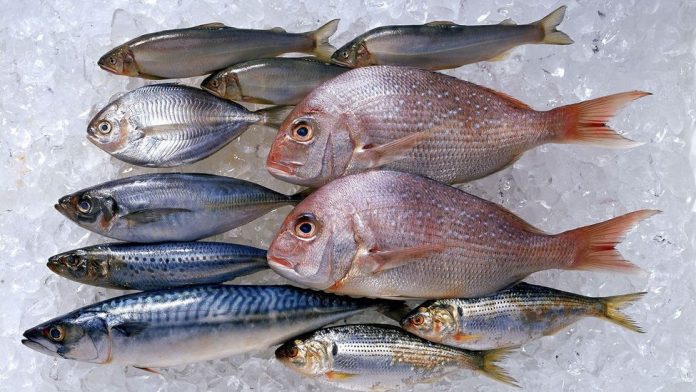In an international study funded by the National Institutes of Health (NIH) and led by the University Of Pittsburgh Graduate School Of Public Health, in a population-based, prospective cohort study, set out to determine whether serum concentrations of long chain n-3 polyunsaturated fatty acids (LCn3PUFAs) contribute to the difference in the incidence rate of coronary artery calcification (CAC) between Japanese men in Japan and USA men.
According to the American Heart Association research has demonstrated that omega-3 fatty acids decrease risk of arrhythmia’s (abnormal heartbeats), which can lead to sudden death. Omega-3 fatty acids also decrease triglyceride levels, slow growth rate of atherosclerotic plaque, and help lower blood pressure.
Dr. Akira Sekikawa, MD, MPH, PhD, associate professor of epidemiology at University of Pittsburgh and lead author of study along with colleagues and scientists in Japan, Hawaii and Philadelphia looked at 214 Japanese men and 152 USA men aged 40–49 years at baseline (2002–2006) with coronary calcium score ; heart scan (CCS)=0 and were re-examined for rate of coronary artery calcification (CAC); the result of calcium deposition in the coronary arteries. Among these, 175 Japanese men and 113 white men participated in the follow-up exam.
Researchers tracked multiple factors that affect cardiovascular health, including cigarette smoking, the level of cholesterol in the blood and alcohol consumption, as well as their rates of diabetes and high blood pressure.
After accounting for risk factors for heart disease the results showed the U.S. men had three times the incidence of coronary artery calcification as the Japanese men. The levels of marine-derived omega-3 fatty acid in the blood were 100% higher in Japanese men than in white men.
In their conclusion the researchers write “long chain n-3 polyunsaturated fatty acids (LCn3PUFAs) significantly contributed to the difference in the incidence of CAC between Japanese and white men.”
“Multiple studies have looked at the effect of fish oil on cardiovascular health, with mixed results.” “Previous studies investigated substantially lower intake of omega-3 fatty acids than what people in Japan actually get through their diet. Our study seems to indicate that the level of marine-derived omega-3 fatty acids consumed must be higher than previously thought to impart substantial protection,” said Dr. Sekikawa.
He continues “The vast difference in heart disease and levels of marine-derived omega-3 fatty acid are not due to genetic factors.” “When we look at Japanese Americans, we find that their levels of coronary artery calcification are actually higher than that of the rest of the U.S. population.”
The average dietary intake of fish by Japanese people living in Japan is nearly 100 grams each day, which the American Heart Association considers 1 ½ servings. The average American eats about 7 to 13 grams of fish a day, or about one serving a week.
In closing Dr. Sekikawa commented “I am not encouraging Americans to start consuming massive amounts of fish, which may have harmful contaminants, such as mercury, in their flesh.” “However, our findings indicate that it is worthwhile to take another look at the effect of marine-derived omega-3 fatty acids on heart disease, particularly when consumed at higher rates than previously investigated.”
According to the American Heart Association Annual Statistical Update; Heart disease is the No. 1 cause of death in the world and the leading cause of death in the United States, killing almost 380,000 Americans a year.
The findings will be published in the March 6 issue of the journal Heart.















